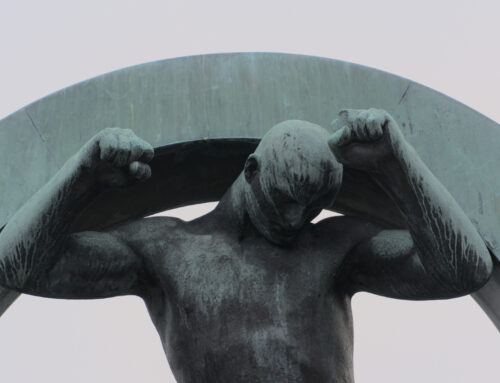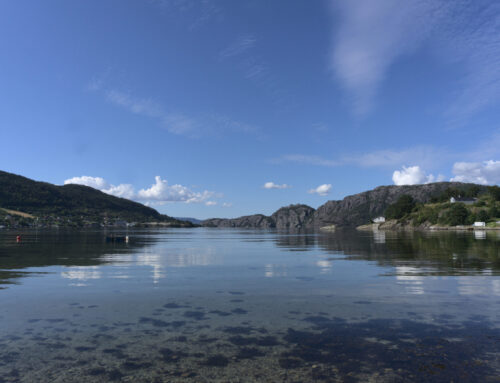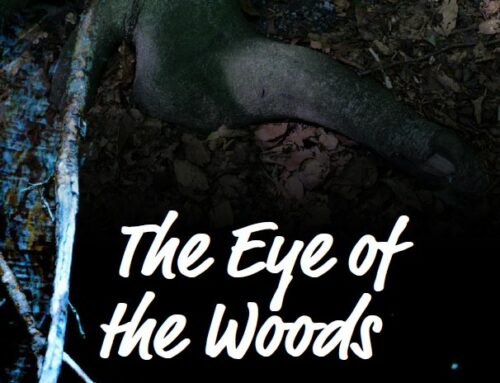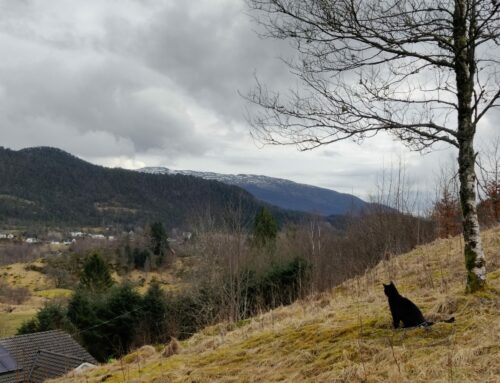My last post was before the summer and so much has changed since then. However, what I said at the end remains true.
If I could have it my way, I would do a job that helped people make it through the day. And I would write articles and books. I would take photos that inspire people to get out into nature and experience the world.
I have started new studies to become a correctional officer, I have continued with my book projects, though at a slower pace than initially expected. That’s what happens when other things need to be prioritised, like taking on a new professional challenge. And I relentlessly take pictures, play with them, and publish them on Flickr.
But this post is about my professional journey towards helping people. That journey started with a summer job, which introduced me to the role of a prison officer. A summer like none other and a deeply eye-opening and rewarding experience. It’s never too late to try something new, even something potentially scary or out of the ordinary.
Placed with young offenders
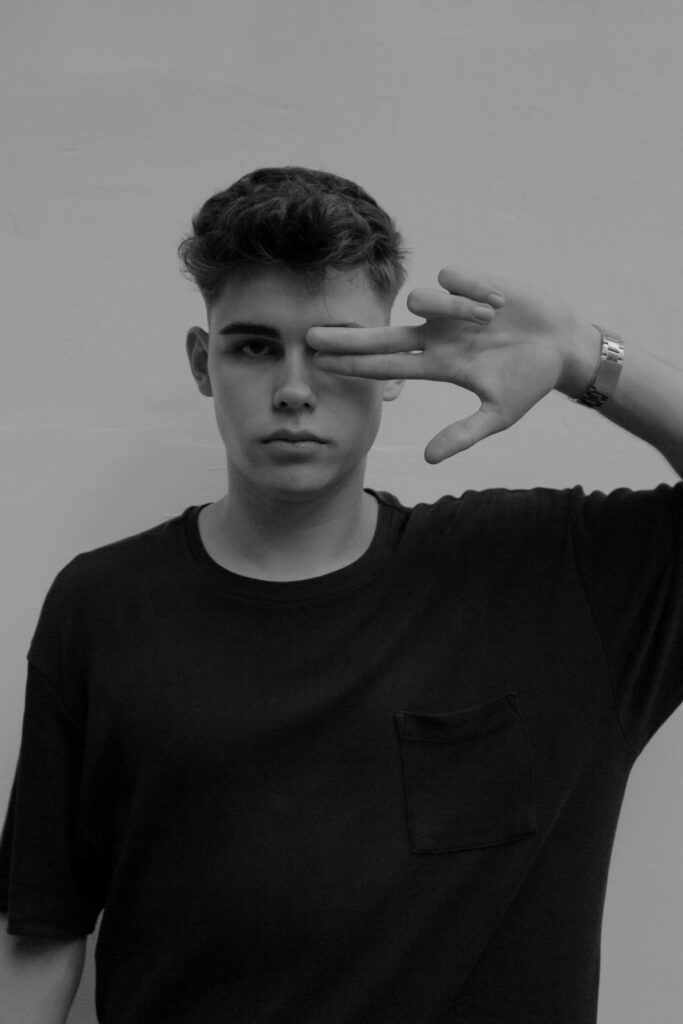
Photo by Mary Winchester on Unsplash
I have been a volunteer in various rehabilitation activities for the last few years. This year, I seriously started thinking about making a living out of helping people. After a successful interview and an intense training week in self-defence and the use of physical force (“fysisk maktanvendelse” in Norwegian), I got offered a summer job at one of the local prisons around Bergen. There are two main prisons: Bergen fengsel (high security) and Bjørgvin fengsel (low security). Which one would it be?
While I was out on a run around my local lake back home in Bergen, I received a text message telling me that I was being placed in the youth unit at Bjørgvin fengsel. This was because I had applied to the University College of Norwegian Correctional Service, KRUS. With that in mind, it made sense to place me in a high-security setting and give me a feel of what that’s like.
Having spent a lot of time with adult ex-convicts as a volunteer, I had been looking forward to more of that. I was not overly thrilled to be placed with young offenders between the age of 15 and 18. But when life throws you a challenge, there’s got to be a reason. It’s an opportunity to learn. And I believe you learn most when outside of your comfort zone. So, I said that was fine with me and went about my life. Then June came around.
What did I do?
The first week was spent in training on the job, learning all about the many security rules and routines, health and safety, and the administrative tasks of the job. There are a lot of rules to follow and a lot that you need to know before you can operate independently alongside your colleagues. That’s reassuring, given the context.
Like any workplace, there is a certain amount of administration to get your head around. In this case, everything you do needs to be documented. Unlike other places where I have worked, there are systems in place and the work and workday are very structured. I found this refreshing, though the IT was a flashback to the 90s.
Then, there’s the activities with the inmates. At last, I hear you say!
Your day is very structured when you’re in prison and there’s a strict timetable to keep. Alongside that, you help the inmates with their day-to-day tasks (admin, appointments, cleaning, making food, etc.), and with educational and recreational activities. It was the summer so school was in recess, so it was mostly games, like playing volleyball, cards, board games, or video games. Remember that my experience was in a youth unit, which makes it quite different to a high-security setting with adults. There are far more resources for young offenders in Norway, and this is reflected in the number of staff and the activities offered.
Children in prison

Photo by Warren on Unsplash
Norway only has two prisons for young offenders, with place for four in each. There are a couple of temporary places elsewhere, but there’s a very high threshold in Norway for young people under 18 to be imprisoned. There are other institutions and professionals that will have tried to help before they end up in prison.
I have now learned that it is a recommendation of the European Prison Rules that children should not be incarcerated with adults. Recommendation 11.1 states that: “Children under the age of 18 years should not be detained in a prison for adults, but in an establishment specially designed for the purpose.” Furthermore, recommendation 11.2 says that: “If children are nevertheless exceptionally held in such a prison, there shall be special regulations that take account of their status and needs.” (Committee of Members, 2020)[1]
Back to my summer job. These are not kids from privileged backgrounds we’re talking about here. Most people, children included, who end up in prison have not had it easy. These children aren’t easy to be around, and they don’t make life easy for you either. Even with the best intentions, some days were just tough with little reward.
The good and the bad
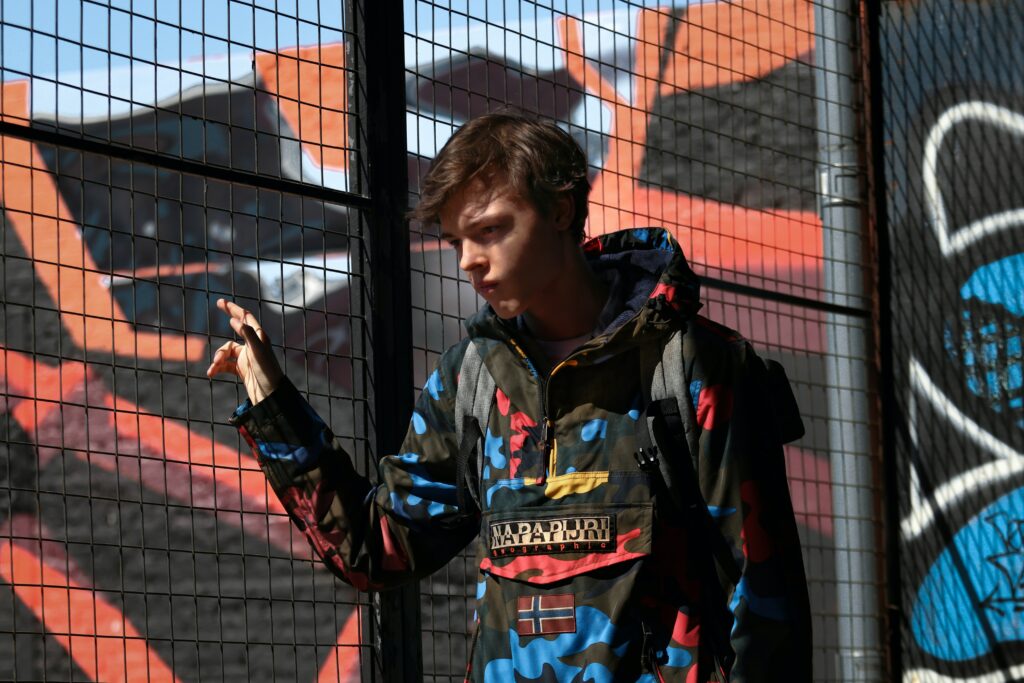
Photo by Anton Danilov on Unsplash
If you’re lucky, you might get to spend some one-on-one time talking with one of the young offenders. Sitting in a sofa together, playing chess, or watching them playing video games on their own and getting them talking. Those days were by far the best days, where I felt that I established contact and helped them have a better experience of talking to an adult.
Volleyball in the courtyard was a popular summer activity, though it wasn’t easy to be included in the game. The level was pretty high, and the kids were competitive! This caused quite a lot of moments of tension between prison staff and the youths when offensive behaviour and social exclusion took place.
Monopoly was a huge source of excitement and some evenings the youths got so energetic that they wound each other up and spun out of control. The staff had to be present in numbers to try to calm things down. I was the bank on several occasions, which I enjoyed, and I didn’t personally experience any threats. How did I manage that?
I played chess on a few occasions with a couple of the inmates, and I never lost. That was a new experience, and it was not because they were terrible. It’s a game of patience and I think they learned something there. I like cooking so I spent quite a lot of time preparing the evening meal. Some days this was met with some acknowledgement, other days with rejection. Mixed feelings there for an enthusiastic cook!
On my last day, I said goodbye to one of the young offenders and wished him well. He thanked me and said that it had been nice to meet me. We smiled to each other and then I left. That little moment will always stay with me.
I had a late shift, came home around 23 CET, and the next day, I was driving off to Lillestrøm to start my new studies to become a prison officer. The summer was over without a day’s break in between work and studies.
The road ahead

Photo by Andrew Neel on Unsplash
I’ve been here in Lillestrøm for three months now. The studies last two years with a third year in a prison in Norway. KRUS is the only university in Norway that trains prison officers and it’s run by the Directorate of Norwegian Correctional Services (Kriminalomsorgsdirektoratet – KDI). The Directorate itself is under the remit of the Ministry of Justice and Public Safety. But more about that in a future post.
My summer work experience left me impressed and humbled and very motivated to start on a new journey. I could see the immediate impact of my work. For someone who has had a traditional office job for over fifteen years, this was a real change. I was helping people in a concrete and tangible way, and I saw how crucial this job is for society. These prisoners will eventually come out again. While they’re in prison, we can do our best to help them get ready for life outside the prison walls as free citizens.
Some of the skills you need for the job are a genuine interest in meeting the other person, non-violent and non-verbal communication skills, empathy, and openness. It’s also important not to take rejection personally and to remember the context you’re in. You’ll also need good physical condition. I’ve upped my training since I started college!
I was humbled by the experience and touched by the people I met, the inmates, officers, carers, teachers, managers, psychologists, and teachers. And it motivated me to make a career change and broaden my job options. We only have one life. I want to spend mine doing things that are meaningful to me and rewarding. Corrections, writing, editing, and photography.
Until next time!
[1] https://search.coe.int/cm/Pages/result_details.aspx?ObjectID=09000016809ee581

